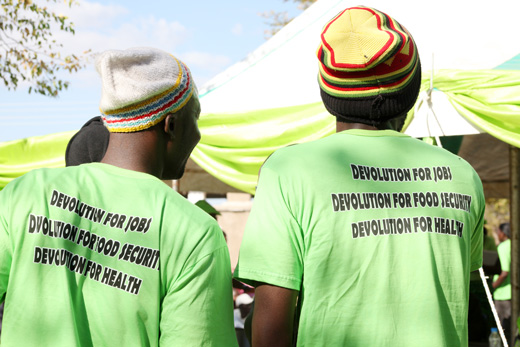
THE government should expedite the implementation of devolution so that everyone in the country can have equal access to resources, researchers have said.
BY MTHANDAZO NYONI/NQOBANI NDLOVU
Presenting a paper at a devolution audit conference organised by Public Policy Research Institute of Zimbabwe (Priz) in Bulawayo on Thursday, National University of Science and Technology researchers said devolution provided economic incentives for locals.
“(It) allows improved community participation, leading to better representation and empowerment of the poor, vulnerable and marginalised groups. (It also) promotes active community involvement in policymaking processes,” said a representative of the researchers, Gracious Maviza.
She said devolution leads to equity and social development, increases public sector accountability in the sense that it enhances clear public accountability mechanisms through which local authorities and institutions account to the communities (in terms of revenue sharing).
Bulawayo Progressive Residents’ Association co-ordinator Rodrick Fayayo concurred saying the implementation of devolution was long overdue. He said most officials who were supposed to implement devolution were against the system of governance.
Devolution proved popular, especially in areas such as Matabeleland, Manicaland and Masvingo, during the constitution-making process in 2013, where people felt their provinces were lagging behind in development, or they were not benefiting much from natural resources in their areas.
But the ruling Zanu PF opposed devolution, saying it was divisive. However, following protracted negotiations and horse-trading with opposition parties, Zanu PF grudgingly accepted devolution after ensuring it was significantly watered down.
- Chamisa under fire over US$120K donation
- Mavhunga puts DeMbare into Chibuku quarterfinals
- Pension funds bet on Cabora Bassa oilfields
- Councils defy govt fire tender directive
Keep Reading
However, Maviza said these strategies do not produce automatic improvements in citizen participation and there was need to pay attention to possible landmines that have a potential to derail it and find possible strategies to curb their ill effects.
“Devolution poses significant questions and possible landmines,” she said.
Maviza added that if unchecked, devolution promotes corruption saying without strong institutions, transferring old habits to a new system of governance transfers the ills of centralisation. The MDC-T missed an opportunity to force the implementation of devolution of power, starting with Bulawayo, when it had parliamentary majority after the 2013 elections, Bulawayo civic groups campaigning for decentralisation of governance structures have argued.

Meanwhile, the Campaigners for Devolution said the main opposition MDC-T did not need to wait for enabling legislation to constitute a provincial council in Bulawayo where it used to have a parliamentary majority after the 2013 elections.
According to Section 272, Chapter 14 of the new Constitution, a political party with the highest number of National Assembly seats is the one that should nominate persons to the provincial assembly.
“The MDC-T could have used their Bulawayo province majority to constitute themselves into a provincial council, elect a provincial council chair and be sitting as a council. True that council will have operated outside an enabling Act and was not going to be recognised by the government, but it was going to be one of the radical and daring stands by that party to show their stand,” the civic groups said under the banner of Campaigners for Devolution.
The civic groups added: “In Bulawayo, where they enjoyed an overwhelming majority, they could have mobilised their members to frustrate every parliamentary public hearing by demanding devolution of power.”
The failure to devolve powers has seen radical groups such as the Mthwakazi Liberation Front demanding secession.










